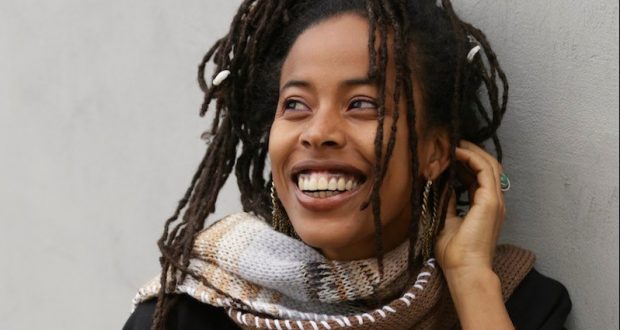*This conversation was recorded in March 2018, before cannabis became legal in Canada.*Interview is at the bottom of this article*
For decades, Rastafarians had to contend with the fact that a sacred part of their tradition was illegal in Canada: marijuana.
Smoking marijuana is considered a spiritual act by Rastafarians, who use it in ceremonies and rituals to help achieve enlightenment.
Donisha Prendergast is a practising Rastafarian, a social activist, actress and filmmaker living in Toronto. She is also the granddaughter of the most famous Rastafarian the world has ever known — the iconic singer-songwriter Bob Marley.
“It’s really interesting to me how people will look upon the Rasta man who is sitting and smoking his spliff and tell him that he’s wasting his time, but that’s what Bob Marley did.” – Donisha Prendergast

As a Rastafarian, Prendergast is a vegetarian, actively works for social justice for communities in the Caribbean and Africa, and uses marijuana daily as part of her spiritual practice. She rejects the notion that cannabis is a drug.
“Rastas don’t ‘do drugs’ because ganja is not a drug. Ganja is a plant,” Prendergast told Tapestry guest host Ali Hassan.
Prendergast explained that the spiritual power of marijuana comes from the circumstances in which it’s used: a combination of the person’s intention when they smoke marijuana, as well as the physical space where it’s used.
“It’s hard to use the plant as a sacrament in a club. But it’s not hard to use the plant as a sacrament at a reggae concert. Do you understand the difference? Because the gathering and the intention is different.”

Donisha Prendergast and Ali Hassan in the CBC Radio studios.
In March 2018, Hassan asked Prendergast about the upcoming legalization of marijuana in Canada, and how that might affect the Rastafarian community.
She said conversations around justice need to happen while this new industry is developing.
“Do you know what it’s like to come from a Caribbean country and to come into a country that the food is not anything that you know? The weather is nothing you know? The one thing you do know is this plant — and then they say you can’t have it and then they lock you away because it’s the safe space that you know?” asked Prendergast. “A lot of children have been taken away from their families because of this plant. Even tomorrow, I’m sure, while the government is trying to figure out what legal framework will be.”
“The truth is that we’ve been smoking ganja forever, whether it was legal or illegal. We found a way because it was our sacrament and we weren’t doing anything wrong — ever. And now that it’s about to be legal, we still weren’t doing anything wrong — ever. We were only trying to send our children to school and to live.”
Prendergast said she believes the Canadian government is visionary and she calls on them to seize this moment to make positive changes.
“I hope that the government will move toward creating policies to ensure that communities that have been negatively impacted by this plant will be able to benefit from the commercialization of it in the short and long term … through making it mandatory that certain percentages of monies made every year going to certain funds that can be accessed to help to rehabilitate certain communities. Let’s be visionary with the healing of the nation … Let’s be creative, man. You all like this word ‘innovative’. Let’s be innovative.”
Prendergast has travelled around the world to explore the history and evolution of the Rastafarian tradition in a documentary called RasTa: A Soul’s Journey.
Here is the full interview:
Via CBC.ca

